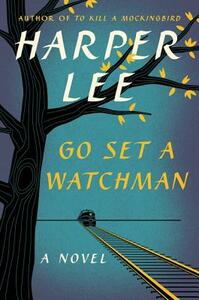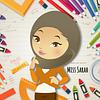Take a photo of a barcode or cover
reflective
fast-paced
Plot or Character Driven:
Character
Strong character development:
Complicated
Loveable characters:
No
Diverse cast of characters:
Complicated
Flaws of characters a main focus:
Yes
Из этой книги мы узнаем, что расизм в южных штатах не лишен смысла, а лирическая героиня Просто Запуталась, считая черных людьми. Ужасная книга, ничего общего с Убить пересмешника, кроме имен персонажей.
I would like to give this book 4.5 stars! I really enjoyed it. I felt like I got to know some characters so characters even more.
SPOILER ALERT:
I liked that the book had several flashbacks to Scout and Jem's childhood. Some of the plots were so hilarious and could have been scenes from TKAM. I sure missed Dill and loved having him back. They were also bittersweet and made me grieve for poor Jem taken so young. The last "showdown" between Jean Louise and her Dad was so well written and heartbreaking. But it makes the ending scene so perfect. I throughly enjoyed this book.
SPOILER ALERT:
I liked that the book had several flashbacks to Scout and Jem's childhood. Some of the plots were so hilarious and could have been scenes from TKAM. I sure missed Dill and loved having him back. They were also bittersweet and made me grieve for poor Jem taken so young. The last "showdown" between Jean Louise and her Dad was so well written and heartbreaking. But it makes the ending scene so perfect. I throughly enjoyed this book.
slow-paced
Plot or Character Driven:
Character
Strong character development:
No
Loveable characters:
No
Diverse cast of characters:
No
challenging
emotional
reflective
sad
slow-paced
Plot or Character Driven:
Character
Strong character development:
Yes
Loveable characters:
Complicated
Diverse cast of characters:
No
Flaws of characters a main focus:
No
I didn’t hate it. I found it to be a fairly decent read. I can understand the people who have special feelings for Mockingbird and Atticus Finch not liking it but I only recently re-read Mockingbird (since the 10th grade) and while I enjoyed it, it doesn’t hold a special place in my heart. So I was able to read it fairly objectively I think.
It was clunky in a lot of places and needed better editing. I can also understand why Lee’s publishers first read this in the 60s (apparently she wrote this first) and asked her to write about Scout and Jem’s childhoods instead. Some of the best parts of Watchman were Scout looking back on her childhood. Lee writes children’s perspectives with humour and insight and that’s what I liked the best about Mockingbird, as well.
The major focus of the book— Scout being devastated that Atticus and almost everyone else she knows and loves from Maycomb are actually racists— was somewhat interesting and I think its purpose was meant to highlight how complex and affecting the civil rights movement in the South was at the time but I am not sure she quite accomplished this. With better editors, I think it could have been a much better book.
Glad I read it anyway just so I know what the fuss is all about.
It was clunky in a lot of places and needed better editing. I can also understand why Lee’s publishers first read this in the 60s (apparently she wrote this first) and asked her to write about Scout and Jem’s childhoods instead. Some of the best parts of Watchman were Scout looking back on her childhood. Lee writes children’s perspectives with humour and insight and that’s what I liked the best about Mockingbird, as well.
The major focus of the book— Scout being devastated that Atticus and almost everyone else she knows and loves from Maycomb are actually racists— was somewhat interesting and I think its purpose was meant to highlight how complex and affecting the civil rights movement in the South was at the time but I am not sure she quite accomplished this. With better editors, I think it could have been a much better book.
Glad I read it anyway just so I know what the fuss is all about.
3. 5
I think it forces you to think in ways that can be uncomfortable but necessary to understand our place in a wider society. It's a messy book that seems to well reflect the messiness of our current state of affairs.
I think it forces you to think in ways that can be uncomfortable but necessary to understand our place in a wider society. It's a messy book that seems to well reflect the messiness of our current state of affairs.
I've never read To Kill A Mockingbird but I've heard about it and how great the book is. I've bought this book because I've seen its cover everywhere and it's related to that amazing book.
The reading sometimes is light and sometimes it confuses me, I feel like I'm lost. I can't get what the author wants the reader to know or understand.
I loved the characters and how a whole family is consumed with what the community or the neighbours would say if a person did a deed they didn't approve on. I can relate that to our society/community here in Kuwait. I loved Jean-Louis strong character and how she stands up to her family trying to convince them of her point.
But something made that book somehow boring.
The reading sometimes is light and sometimes it confuses me, I feel like I'm lost. I can't get what the author wants the reader to know or understand.
I loved the characters and how a whole family is consumed with what the community or the neighbours would say if a person did a deed they didn't approve on. I can relate that to our society/community here in Kuwait. I loved Jean-Louis strong character and how she stands up to her family trying to convince them of her point.
But something made that book somehow boring.
This book was an unexpected emotional seesaw. From its engaging but innocuous beginnings to its ugly, racist diatribes to its powerful conclusion, it led me where I did not want to go. Not a legal thriller like its predecessor, Go Set a Watchman is nothing if not a coming of age novel. Because Harper Lee so closely resembles her protagonist, Scout, I do wonder whether this is her story.
I understand that the book was written in the 1950's, and I imagine that some will be offended - even outraged - by the racial slurs which are cast about by absolutely everybody, even the 'good guys.' In the end, racism isn't the central point of the story - it is "incidental" according to one character. But I think it's an illuminating historical study of racism in America, and, perhaps, the growth ultimately experienced by Scout parallels the growth we have experienced in this country from one generation to the next. I hope so.
I understand that the book was written in the 1950's, and I imagine that some will be offended - even outraged - by the racial slurs which are cast about by absolutely everybody, even the 'good guys.' In the end, racism isn't the central point of the story - it is "incidental" according to one character. But I think it's an illuminating historical study of racism in America, and, perhaps, the growth ultimately experienced by Scout parallels the growth we have experienced in this country from one generation to the next. I hope so.
Spoilers later on!
I cried my way through the final thirty pages of this book. It's a brilliant piece of work.
Much has been said and written and talked down about this book and the context of its genesis and eventual publication. Critics and readers alike seem to feel no obligation to respect Harper Lee's position in American literature simply because it concerns a book that was 'a first draft of a brilliant book, and why was this even published? It's not worth my time!' I'm very glad I went into reading Go Set a Watchman knowing nothing about it except that it featured Jean Louise Finch and her family. It enabled me to appreciate how well the story is set up, how well Lee knows her characters, and how heart-wrenching the conclusion is.
The conclusion of the novel was what made me cry. It affected me greatly for several reasons. Firstly, I think it's down to Lee's strengths as a writer--she took me on a journey, I went right along with Jean Louise and felt what she felt. I was just as outraged at Atticus and Henry as Jean Louise was, and I had to learn just as much as she did at the end. Perhaps it also helped that I'm close to Jean Louise's age. But most importantly, I learned similar lessons during the past two years, and recognised much of my own life, emotions and growth in Jean Louise.
The conclusion of the novel works on two levels. It doesn't just express a crucial element of growing up--the lesson that our parents are not Gods or saints, and that we can only live and grow when we are prepared to disagree with them and 'reduce them to human beings', as Lee writes--but also America as a nation in flux and the necessity of reasoned debate in order to grow. We need to be open to everyone's point of view, opinion or experience, even those with whom we most vehemently disagree. In other words, whilst we as children need to reduce our parents to human beings, we need to raise up our opponents in public debates to the same state. If that's not a lesson worth reading this novel for, I don't know what is.
I cried my way through the final thirty pages of this book. It's a brilliant piece of work.
Much has been said and written and talked down about this book and the context of its genesis and eventual publication. Critics and readers alike seem to feel no obligation to respect Harper Lee's position in American literature simply because it concerns a book that was 'a first draft of a brilliant book, and why was this even published? It's not worth my time!' I'm very glad I went into reading Go Set a Watchman knowing nothing about it except that it featured Jean Louise Finch and her family. It enabled me to appreciate how well the story is set up, how well Lee knows her characters, and how heart-wrenching the conclusion is.
The conclusion of the novel was what made me cry. It affected me greatly for several reasons. Firstly, I think it's down to Lee's strengths as a writer--she took me on a journey, I went right along with Jean Louise and felt what she felt. I was just as outraged at Atticus and Henry as Jean Louise was, and I had to learn just as much as she did at the end. Perhaps it also helped that I'm close to Jean Louise's age. But most importantly, I learned similar lessons during the past two years, and recognised much of my own life, emotions and growth in Jean Louise.
The conclusion of the novel works on two levels. It doesn't just express a crucial element of growing up--the lesson that our parents are not Gods or saints, and that we can only live and grow when we are prepared to disagree with them and 'reduce them to human beings', as Lee writes--but also America as a nation in flux and the necessity of reasoned debate in order to grow. We need to be open to everyone's point of view, opinion or experience, even those with whom we most vehemently disagree. In other words, whilst we as children need to reduce our parents to human beings, we need to raise up our opponents in public debates to the same state. If that's not a lesson worth reading this novel for, I don't know what is.



